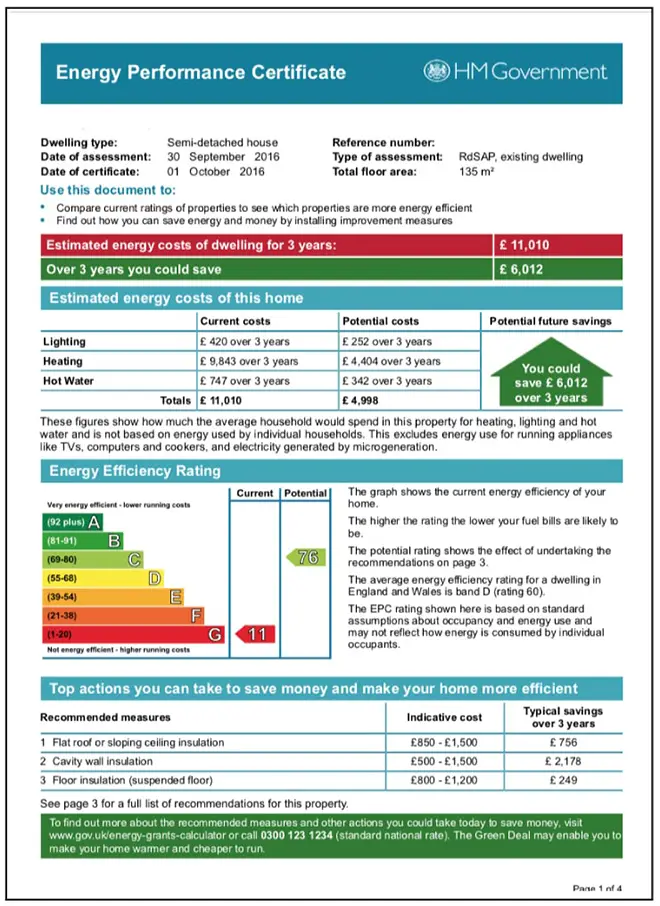
The EPC is an Energy Performance Certificate containing information about the property’s energy efficiency and CO2 emissions. Energy is rated on a scale from A (very efficient) to G (very inefficient).
You must have an EPC if:
ACCESS – During the assessors visit to the property your assessor will need access to all rooms and areas of the home including, loft, utility areas, meter locations and boiler. An inspection typically takes around an hour.
PROOF – Make available any certificates you have for energy improvements such as cavity wall certificates, loft insulation guarantees, double glazing warranties and any schematics or MCS certificates for solar. Assessors can only go on information provided on the day of the inspection.
CHECKS – reviewing:
RATING – This information is entered into specialised software, which calculates the property’s energy efficiency rating and CO2 emissions.
REPORT – The EPC contains a recommendation report, showing how to improve energy efficiency and lower CO2 emissions.
This final EPC Report suggests cost-effective measures, including low or zero-carbon systems, to improve energy efficiency. By implementing these recommendations, you can enhance the property’s energy performance and reduce future fuel costs.
Here are some general tips to improve your rating:
Legal Requirement: If you’re selling or renting out a property in Congleton, Sandbach or anywhere in England you must have an Energy Performance Certificate (EPC). Not having one can lead to fines of up to £5,000.
Understanding Energy Use: An EPC shows how energy-efficient a property is. It helps homeowners see where energy is being wasted and suggests ways to improve efficiency, which can help lower energy bills.
Saving Money on Bills: The EPC provides recommendations for making your home more energy-efficient, like adding insulation or upgrading to a better boiler. These changes can cut down energy use and save money.
Increasing Property Value: Homes with better EPC ratings are more attractive to buyers and renters. With rising energy costs and more people looking for sustainable homes, a high rating can make a property more valuable.
Helping the Environment: The EPC also shows how much carbon dioxide (CO₂) a property produces. Making improvements can lower emissions and reduce the home’s impact on the environment.
Government Grants & Support: If a property has a low EPC rating, there may be government schemes available to help pay for energy efficiency upgrades, such as insulation or renewable energy options.
Attracting Tenants: Landlords with energy-efficient properties are more likely to attract tenants, especially as people become more aware of energy costs and climate change.
Future-Proofing Your Property: The UK government is tightening energy efficiency rules, aiming for net-zero emissions by 2050. Improving a property’s EPC rating now can help homeowners stay ahead of future regulations.
CONTACT
colin@walterward.com
07767385 382
EPC House
93 Avon Drive
Congleton
CW12 3RG